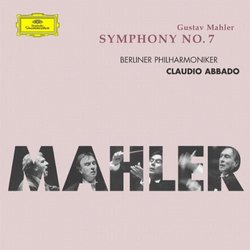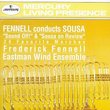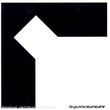| All Artists: Gustav Mahler, Claudio Abbado, Berliner Philharmoniker Title: Mahler: Symphony No.7 Members Wishing: 0 Total Copies: 0 Label: Deutsche Grammophon Original Release Date: 1/1/2001 Re-Release Date: 6/11/2002 Album Type: Live Genre: Classical Style: Symphonies Number of Discs: 1 SwapaCD Credits: 1 UPC: 028947162322 |
Search - Gustav Mahler, Claudio Abbado, Berliner Philharmoniker :: Mahler: Symphony No.7
 | Gustav Mahler, Claudio Abbado, Berliner Philharmoniker Mahler: Symphony No.7 Genre: Classical
Claudio Abbado's new version of Mahler's 7th (his Chicago recording was made over 20 years ago) is the product of a May 2001 concert in Berlin. It may not displace such outstanding 7ths as those by Bernstein, Gielen, Tilso... more » |
Larger Image |
CD DetailsSynopsis
Amazon.com Claudio Abbado's new version of Mahler's 7th (his Chicago recording was made over 20 years ago) is the product of a May 2001 concert in Berlin. It may not displace such outstanding 7ths as those by Bernstein, Gielen, Tilson Thomas, and Kondrashin, but Mahlerians will want it for its extraordinary orchestral playing and for the way Abbado captures the otherworldly qualities of this massive work. Even with his slightly faster than usual tempos, Abbado lends the huge first movement march a sense of foreboding and excels in fully projecting the weird, offbeat flavor of the Scherzo and the strangeness of the stream-of-consciousness night music movements. The dense finale is especially notable for its tremendous energy and for conveying the quality of completing a dark journey through night and into bright daylight, with the closing explosion of deep bells brilliantly captured. The Berlin Philharmonic's playing is amazing for its accuracy and its tonal beauties; for example, the strings' caress of their music in the second night music movement is far above the ordinary. --Dan Davis Similarly Requested CDs
|
CD ReviewsAbbado and Berlin in a triumphant performance Bruce Hodges | New York, NY | 10/11/2002 (5 out of 5 stars) "This outstanding new Mahler 7th is a testament not only to the piece itself - one of the most difficult of Mahler's symphonies to bring off - but to one of our greatest living conductors. Abbado's earlier version with the Chicago Symphony Orchestra was excellent, but this live recording is really very special. From the opening measures of the sober march, to the riotously exciting pages of the finale, the performance seems to cohere in a way that lesser conductors can only imagine.In between, Abbado directs possibly the spookiest sounding "Scherzo" I have ever heard, sharply articulating the bizarre sound effects, and the two shorter "Nachtmusik" sections are lovely. The final "Rondo," however is the section that I will replay most often. Somehow this movement never quite seems to be the climactic ending that it should be, but not with Abbado. As in the rest of the symphony, he takes it at quite a clip; perhaps for this particular work, faster is better. And "fast" only begins to describe the richness on display. This is utterly thrilling music - as wild and Mahlerian as it gets - and the ending is capped by a long ovation from an obviously enthralled audience. With the Berlin Philharmonic in cracking form, this is a magnificent document and a superb example of live recording at its best." Among the finest R. J. Claster | Van Nuys, CA United States | 01/25/2003 (5 out of 5 stars) "In my opinion, this is the pick of the lot among the latest series of live Mahler performances (the other two being the 3rd and 9th, both of which I find to be distinctly underwhelming, the 9th more so, compared to the best) by Abbado and the Berlin Phil. Here, Abbado's effectiveness in bringing out voicings and textures, together with his sensitivity to the Wunderhorn qualities of this music, impart both a lyric grace and beauty to the two Nachmusik movements, and a spiky spookiness to the Scherzo, that make both Bernstein-Sony and Solti sound rather plain by comparison. Moreover, Abbado also surpasses both of them in achieving a grandeur in the closing pages of the final movement, which, to me, renders it a truer climax for the whole work. The only criticisms of this recording I would make is that the epic first movement in Abbado's hands just sort of lays there, lacking either Bernstein's emotional intensity or Solti's muscular rhythmic drive, and the recording is somewhat lacking by current standards in both dynamic range and upper octave extension. Nevertheless, this is one of the best performances I have heard on CD." A Whole New Mahler's Seventh! R.Vandlac | Sherwood, OR USA | 07/08/2002 (5 out of 5 stars) "Hearing the new Berlin/Abbado version of Mahler's Seventh Symphony was like hearing this music for the first time. The 7th symphony deservedly earns it's repuation as the weakest contructed of the Mahler symphonic canon, however Abbado and the BPO have managed to illuminate each nuance with a subtlety and precision that allows every musical idea and melody to flow together naturally. The second movement (the first of two "Nachtmusicks") is quite magical with the "echo effect" of the opening horns a suprising and charming interpretive surprise. The ensemble playing throughout the movement (and the entire symphony) is peerless and exactly what we have come to expect from the magnificent Berlin Philharmonic Orchestra.The recording was taken from a live performance from 2001 at the Philharmonie and is quite excellent if not quite as "perfect" as the best digital studio recordings. However, the performance is really in a league of its own. Compare this recording with the "critically acclaimed" Cleveland/Boulez version (also from DG) and you can hear the difference between playing all the notes and "Playing the Music". This is truly a performance that you will want to play over and over again.Even if you have other performances, you are going to want to own this one."
|

 Track Listings (6) - Disc #1
Track Listings (6) - Disc #1




